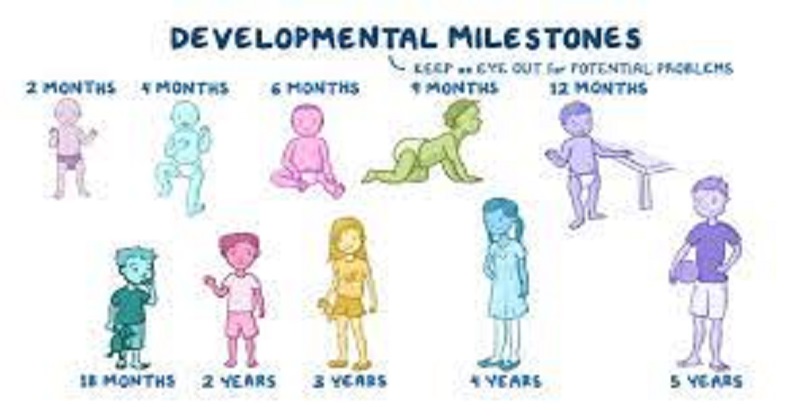Developmental milestones are the specific physical, cognitive, and behavioral skills that children tend to develop at certain ages. These milestones provide a general guide to parents, caregivers, and healthcare professionals in understanding a child’s growth and development. In this article, we will explore what developmental milestones are, their significance, how they vary among children, and more.

What Are Developmental Milestones?
| Age Range | Physical Milestones | Cognitive Milestones | Emotional/Social Milestones |
|---|---|---|---|
| 0-3 months | Holds head up | Responds to faces | Smiles at people |
| 4-6 months | Rolls over | Recognizes familiar objects | Enjoys social play |
| 7-12 months | Crawls | Understands simple words | Shows fear of strangers |
| 1-2 years | Walks independently | Identifies body parts | Begins playing alongside peers |
| 3-5 years | Climbs well | Counts to ten | Shows empathy |
Significance of Developmental Milestones
These milestones are not rigid timelines but are reference points that help to identify whether a child is developing within a typical range. They are pivotal in identifying if a child might have a developmental delay or disorder. Early detection and intervention can greatly impact a child’s ability to grow and learn.
Variability in Milestone Achievement
Every child is unique and develops at his or her own pace. Some children might achieve certain milestones earlier or later than the typical range, and this is usually normal. Genetics, environment, and individual differences all contribute to the rate at which children reach these milestones.
Monitoring and Assessing Milestones
Regular pediatrician visits are crucial for monitoring a child’s developmental progress. Healthcare professionals use standardized tools and observations to assess whether a child is meeting developmental milestones and to identify any areas of concern.
Supporting Healthy Development
Parents and caregivers can play an active role in a child’s development. Engaging in activities like reading, playing, and talking with a child can stimulate cognitive and emotional development. Offering a safe and loving environment is equally important.
Developmental Delays and Interventions
When a child does not meet a significant number of the milestones for his or her age, it may indicate a developmental delay. Early intervention services, such as physical therapy, speech therapy, or special education services, may be beneficial.
Milestones Beyond Early Childhood
Developmental milestones extend into adolescence, focusing more on emotional, social, and cognitive skills, like forming close relationships, making decisions, and developing a sense of identity.
FAQ
What should I do if my child is not meeting milestones?
If your child is not meeting milestones, it’s important to consult with a healthcare professional. They can evaluate your child and determine if an intervention is necessary.
Are developmental milestones the same for boys and girls?
While the milestones are generally the same, the timing can vary between boys and girls, and each child’s development is unique.
How were these milestones determined?
Developmental milestones are based on research and observations of a large number of children. They represent what is typical, but not necessarily what is “normal” for all children.
Can developmental milestones be achieved too early?
Achieving milestones earlier than the typical range is generally not a cause for concern. It simply means that the child is developing those particular skills earlier.
Is it okay to compare siblings or twins?
Each child, even siblings or twins, is unique. Comparisons may not accurately reflect an individual child’s development.
Final Words
Developmental milestones are an essential tool for understanding and tracking a child’s growth and progress. They serve as guides, not rigid timelines, and are meant to provide a general sense of what to expect during a child’s development. Recognizing and understanding these milestones is invaluable for parents and caregivers, as it helps in nurturing a child’s development and identifying potential delays early. While variations in achieving these milestones are normal, consistent and significant delays should prompt consultation with a healthcare professional. The primary goal is always to support and nurture the healthy development of every child, celebrating each step of their unique journey.
This article is intended for informational purposes only and is not a substitute for professional medical advice or diagnosis. Always seek the advice of your healthcare provider with any questions you may have regarding a medical condition.